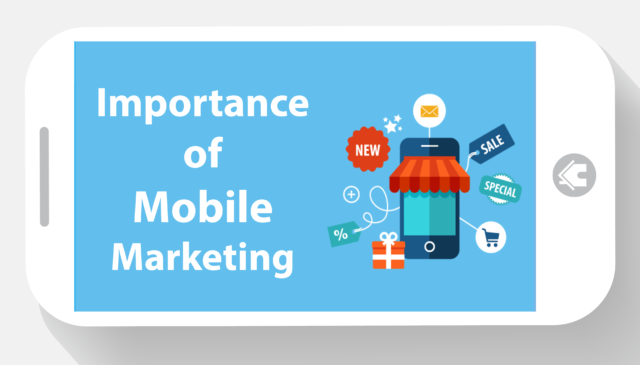In an era where smartphones have become an integral part of our daily lives, mobile marketing has emerged as a crucial strategy for businesses aiming to reach their target audiences effectively. With the majority of consumers accessing the internet through their mobile devices, understanding the importance of mobile marketing is essential for any business looking to thrive in the digital landscape. In this blog, we will explore the significance of mobile marketing and how it can benefit your business.

1. Growing Mobile Usage
Mobile device usage continues to soar, with billions of people worldwide relying on their smartphones for communication, entertainment, and information. According to recent statistics, over 50% of global web traffic now comes from mobile devices. This shift in consumer behavior highlights the necessity for businesses to adopt mobile marketing strategies to connect with their audience where they spend most of their time.
2. Enhanced Customer Engagement
Mobile marketing offers businesses a unique opportunity to engage with customers in real time. Through push notifications, SMS marketing, and mobile apps, brands can communicate directly with their audience, providing timely information, promotions, and updates. This immediate interaction fosters a more personal connection, leading to increased customer engagement and loyalty.
3. Location-Based Marketing
Mobile devices enable businesses to leverage location-based marketing strategies, allowing them to reach customers based on their geographic location. This is particularly beneficial for local businesses looking to attract nearby customers. For example, restaurants can send special offers to potential diners who are in close proximity, while retailers can promote sales to shoppers in the area. By targeting customers based on their location, businesses can drive foot traffic and increase sales.
4. Improved User Experience
A well-executed mobile marketing strategy prioritizes user experience. Mobile-optimized websites and apps provide seamless navigation, faster load times, and easy access to information. When users have a positive experience on mobile, they are more likely to engage with your brand and convert into customers. Prioritizing mobile user experience is essential for maintaining a competitive edge in today’s market.
5. Social Media Integration
Mobile marketing and social media go hand in hand. With a significant portion of social media traffic coming from mobile devices, businesses can leverage social platforms to reach their audience effectively. Mobile marketing allows brands to create targeted social media campaigns, engage with users through stories and live videos, and utilize features like shoppable posts to drive sales directly from social platforms.
6. Cost-Effective Advertising
Mobile marketing can be a cost-effective way to reach a large audience. With various advertising options available, such as mobile search ads, in-app advertising, and social media ads, businesses can choose strategies that fit their budget. Moreover, mobile ads often have higher engagement rates compared to traditional advertising methods, resulting in better ROI.
7. Data-Driven Insights
Mobile marketing provides businesses with valuable data and insights about their audience’s behavior, preferences, and demographics. By analyzing this data, brands can tailor their marketing strategies to better meet the needs of their customers. Understanding how users interact with mobile content allows businesses to refine their approach and improve overall effectiveness.
8. Increased Conversion Rates
Mobile marketing has the potential to significantly increase conversion rates. With features like one-click purchasing, mobile wallets, and personalized offers, consumers are more likely to complete transactions on their mobile devices. By streamlining the buying process and providing convenient options, businesses can capitalize on mobile users’ willingness to make purchases on the go.
9. Building Brand Awareness
Mobile marketing plays a crucial role in building brand awareness. Through targeted ads, social media engagement, and content marketing, businesses can reach a broader audience and create a lasting impression. Consistent branding across mobile platforms helps reinforce brand identity and keeps businesses top of mind for consumers.
10. Staying Competitive in the Market
As more businesses recognize the importance of mobile marketing, those that fail to adapt risk falling behind. A robust mobile marketing strategy not only helps businesses reach their target audience but also positions them as forward-thinking and customer-centric. Staying ahead of the competition requires embracing mobile marketing as a core component of your overall marketing strategy.
Conclusion
Mobile marketing is no longer an optional strategy; it is essential for businesses looking to thrive in today’s digital world. With the growing prevalence of mobile device usage, enhanced customer engagement opportunities, and the ability to leverage location-based marketing, businesses can significantly benefit from a well-executed mobile marketing strategy. By prioritizing user experience, integrating social media, and utilizing data-driven insights, brands can drive growth and build lasting relationships with their customers. Embracing mobile marketing is the key to staying relevant and competitive in an ever-evolving marketplace.


No responses yet